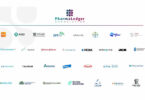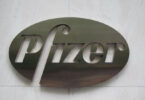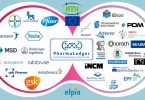Blockchain startup Mediledger has published the results of its FDA blockchain pilot for the pharmaceutical supply chain. Numerous separate groups applied to the FDA and ran pilots for the Drug Supply Chain Security Act (DSCSA) 2023 milestone for package-level tracing, with this being one of the largest groups. Mediledger’s participants included all three major U.S. wholesalers, seven out of ten of the world’s largest pharmaceutical companies, massive dispensers Walgreens and Walmart, as well as logistics firms such as FedEx.
But the group also incorporated smaller wholesalers, manufacturers, pharmacies and logistics companies, and standards body GS1 US.
The goal: tracing pharmaceuticals through the supply chain
The ultimate aim is to be able to trace pharmaceuticals from the point of dispensing back to the manufacturer. Given that wholesalers sit between manufacturers and dispensers for the vast majority of drug sales, they play a crucial role. The big three U.S. wholesalers, AmerisourceBergen, McKesson and Cardinal Health account for 94% of sales and all participated in the Mediledger trial.
DSCSA has multiple deadlines. Mediledger already has an operational solution with a narrower group of participants for the 2019 DSCSA deadline, which relates to the ability of wholesalers to trace returns from pharmacies. Shortly before the deadline, the FDA deferred enforcement against wholesalers for a year.
Other countries and regions such as Europe have opted for a centralized approach to data sharing for the pharmaceutical supply chain. Instead, the U.S. pharma sector needs to share data across all parties to achieve a similar outcome and to save lives in the event of a product recall.
As part of the pilot, Mediledger surveyed the group about sharing and the definition of ‘interoperability’. Specifically, does that mean interoperability between just two trading partners or amongst the trading partners? Everyone chose the latter meaning.
FDA pilot conclusions
The report concludes that a single blockchain platform is sufficiently fast and scalable to achieve the objectives of sharing data ‘at a reasonable cost’. The group found that confidentiality and privacy can be achieved using Zero Knowledge proof technology, which hides the actual data but provides true or false type responses to queries.
At the same time, it emphasized the need for an open blockchain architecture and governance from the industry itself. The report is already lobbying for a delay in enforcement by noting that the implementation deadline and enforcement could be separate.
Mediledger has chosen a consortium approach where members share the development costs, and there’s a single code base deployed by each company. The solution uses an enterpise version of Ethereum’s blockchain technology.
The report echoed sentiments that Matt Sample of AmerisourceBergen expressed to Ledger Insights last year in the context of the 2019 DSCSA deadline. For true interoperability, the entire industry needs to be on board, including the service providers.
“You have a great technology like blockchain, which solves the problem, yet you have other commercial interests where other solution providers or companies don’t want to participate,” said Sample at the time.
For example, in the case of the 2019 deadline, there are many separate solutions. If you have a returned drug, which software do you use to see the history? In that case Mediledger stepped in to provide a solution for the industry. It was a look up directory so one could figure out which software to use for that drug.
The need for standards
Perhaps inspired by this, Mediledger’s FDA pilot report calls for standards to ensure that disparate track and trace systems can interoperate. Even though GS1 standards are to be adopted, an additional layer is needed.
54.5% of Mediledger participants thought the standards development should start in 2019, with the rest saying 2020. None thought it could be delayed further.
When we spoke to Matt Sample before the FDA delayed enforcement of the 2019 deadline, his frustration was palpable. Mediledger had a working solution, but as a wholesaler, AmerisourceBergen had to wrangle 500 manufacturers, most of whom hadn’t responded about how they would provide data. Of the ones who had replied, many planned to send data manually and others intended to use a verification router service (non-blockchain solution), which is offered by several different service providers making it tricky to test.
Sample told Ledger Insights: “we’ve got a bunch of technology providers coming up with their own form of the internet. And we all say it’s good to have multiple interests. No, it’s not guys. How would we have multiple internets today? It wouldn’t work.”
The manufacturers involved in the pilot were: Amgen, Dermira, Genentech (Roche), Gilead, GlaxoSmithKline (GSK), Lily, Novartis (Sandoz), Novo Nordisk, Pfizer and Sanofi.






